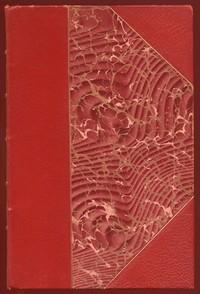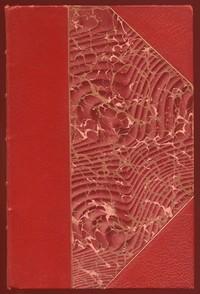Read this ebook for free! No credit card needed, absolutely nothing to pay.
Words: 112861 in 32 pages
This is an ebook sharing website. You can read the uploaded ebooks for free here. No credit cards needed, nothing to pay. If you want to own a digital copy of the ebook, or want to read offline with your favorite ebook-reader, then you can choose to buy and download the ebook.


: The Heart of Mid-Lothian Volume 1 by Scott Walter - Historical fiction; Scotland History 18th century Fiction; Sisters Fiction; Trials (Murder) Fiction; Legal stories; Great Britain History George II 1727-1760 Fiction; Women travelers Fiction; Scots Englan
THE HEART OF MID-LOTHIAN.
Hear, Land o' Cakes and brither Scots, Frae Maidenkirk to Johnny Groat's, If there's a hole in a' your coats, I rede ye tent it; A chiel's amang you takin' notes, An' faith he'll prent it! Burns.
EDITOR'S INTRODUCTION TO THE HEART OF MID-LOTHIAN.
SCOTT began to work on "The Heart of Mid-Lothian" almost before he had completed "Rob Roy." On Nov. 10, 1817, he writes to Archibald Constable announcing that the negotiations for the sale of the story to Messrs. Longman have fallen through, their firm declining to relieve the Ballantynes of their worthless "stock." "So you have the staff in your own hands, and, as you are on the spot, can manage it your own way. Depend on it that, barring unforeseen illness or death, these will be the best volumes which have appeared. I pique myself on the first tale, which is called 'The Heart of Mid-Lothian.'" Sir Walter had thought of adding a romance, "The Regalia," on the Scotch royal insignia, which had been rediscovered in the Castle of Edinburgh. This story he never wrote. Mr. Cadell was greatly pleased at ousting the Longmans--"they have themselves to blame for the want of the Tales, and may grumble as they choose: we have Taggy by the tail, and, if we have influence to keep the best author of the day, we ought to do it."--
Though contemplated and arranged for, "The Heart of Mid-Lothian" was not actually taken in hand till shortly after Jan. 15, 1818, when Cadell writes that the tracts and pamphlets on the affair of Porteous are to be collected for Scott. "The author was in great glee . . . he says that he feels very strong with what he has now in hand." But there was much anxiety concerning Scott's health. "I do not at all like this illness of Scott's," said James Ballantyne to Hogg. "I have eften seen him look jaded of late, and am afraid it is serious." "Hand your tongue, or I'll gar you measure your length on the pavement," replied Hogg. "You fause, down-hearted loon, that ye are, you daur to speak as if Scott were on his death-bed! It cannot be, it must not be! I will not suffer you to speak that gait." Scott himself complains to Charles Kirkpatrick Sharpe of "these damned spasms. The merchant Abudah's hag was a henwife to them when they give me a real night of it."
"The Heart of Mid-Lothian," in spite of the author's malady, was published in June 1818. As to its reception, and the criticism which it received, Lockhart has left nothing to be gleaned. Contrary to his custom, he has published, but without the writer's name, a letter from Lady Louisa Stuart, which really exhausts what criticism can find to say about the new novel. "I have not only read it myself," says Lady Louisa, "but am in a house where everybody is tearing it out of each other's hands, and talking of nothing else." She preferred it to all but "Waverley," and congratulates him on having made "the perfectly good character the most interesting. . . . Had this very story been conducted by a common hand, Effie would have attracted all our concern and sympathy, Jeanie only cold approbation. Whereas Jeanie, without youth, beauty, genius, warns passions, or any other novel-perfection, is here our object from beginning to end." Lady Louisa, with her usual frankness, finds the Edinburgh lawyers tedious, in the introduction, and thinks that Mr. Saddletree "will not entertain English readers." The conclusion "flags"; "but the chief fault I have to find relates to the reappearance and shocking fate of the boy. I hear on all sides 'Oh, I do not like that!' I cannot say what I would have had instead, but I do not like it either; it is a lame, huddled conclusion. I know you so well in it, by-the-by! You grow tired yourself, want to get rid of the story, and hardly care how." Lady Lousia adds that Sir George Staunton would never have hazarded himself in the streets of Edinburgh. "The end of poor Madge Wildfire is most pathetic. The meeting at Muschat's Cairn tremendous. Dumbiedikes and Rory Beau are delightful. . . . I dare swear many of your readers never heard of the Duke of Argyle before." She ends: "If I had known nothing, and the whole world had told me the contrary, I should have found you out in that one parenthesis, 'for the man was mortal, and had been a schoolmaster.'"
Lady Louisa omits a character who was probably as essential to Scott's scheme as any--Douce Davie Deans, the old Cameronian. He had almost been annoyed by the criticism of his Covenanters in "Old Mortality," "the heavy artillery out of the Christian Instructor or some such obscure field work," and was determined to "tickle off" another. There are signs of a war between literary Cavaliers and literary Covenanters at this time, after the discharge of Dr. McCrie's "heavy artillery." Charles Kirkpatrick Sharpe was presented by Surtees of Mainsforth with a manuscript of Kirkton's unprinted "History of the Church of Scotland." This he set forth to edite, with the determination not to "let the Whig dogs have the best of it." Every Covenanting scandal and absurdity, such as the old story of Mess David Williamson--"Dainty Davie"--and his remarkable prowess, and presence of mind at Cherrytrees, was raked up, and inserted in notes to Kirkton. Scott was Sharpe's ally in this enterprise. "I had in the persons of my forbears a full share, you see, of religious persecution . . . for all my greatgrandfathers were under the ban, and I think there were hardly two of them out of jail at once." "I think it would be most scandalous to let the godly carry it oft thus." "It" seems to have been the editing of Kirkton. "It is very odd the volume of Wodrow, containing the memoir of Russell concerning the murder, is positively vanished from the library" . "Neither book nor receipt is to be found: surely they have stolen it in the fear of the Lord." The truth seems to have been that Cavaliers and Covenanters were racing for the manuscripts wherein they found smooth stones of the brook to pelt their opponents withal. Soon after Scott writes: "It was not without exertion and trouble that I this day detected Russell's manuscript , also Kirkton and one or two others, which Mr. McCrie had removed from their place in the library and deposited in a snug and secret corner." The Covenanters had made a raid on the ammunition of the Cavaliers. "I have given," adds Sir Walter, "an infernal row on the subject of hiding books in this manner." Sharpe replies that the "villainous biographer of John Knox" , "that canting rogue," is about to edite Kirkton. Sharpe therefore advertised his own edition at once, and edited Kirkton by forced marches as it were. Scott reviewed the book in the Quarterly . He remarked that Sharpe "had not escaped the censure of these industrious literary gentlemen of opposite principles, who have suffered a work always relied upon as one of their chief authorities to lie dormant for a hundred and forty years." Their "querulous outcries" he disregards. Among the passions of this literary "bicker," which Scott allowed to amuse him, was Davie Deans conceived. Scott was not going to be driven by querulous outcries off the Covenanting field, where he erected another trophy. This time he was more friendly to the "True Blue Presbyterians." His Scotch patriotism was one of his most earnest feelings, the Covenanters, at worst, were essentially Scotch, and he introduced a new Cameronian, with all the sterling honesty, the Puritanism, the impracticable ideas of the Covenant, in contact with changed times, and compelled to compromise.
He possessed a curious pamphlet, Haldane's "Active Testimony of the true blue Presbyterians" . It is a most impartial work, "containing a declaration and testimony against the late unjust invasion of Scotland by Charles, Pretended Prince of Wales, and William, Pretended Duke of Cumberland." Everything and everybody not Covenanted, the House of Stuart, the House of Brunswick, the House of Hapsburg, Papists, Prelatists and Turks, are cursed up hill and down dale, by these worthy survivors of the Auld Leaven. Everybody except the authors, Haldane and Leslie, "has broken the everlasting Covenant." The very Confession of Westminster is arraigned for its laxity. "The whole Civil and Judicial Law of God," as given to the Jews , is to be maintained in the law of Scotland. Sins are acknowledged, and since the Covenant every political step--Cromwell's Protectorate, the Restoration, the Revolution, the accession of the "Dukes of Hanover"--has been a sin. A Court of Elders is to be established to put in execution the Law of Moses. All offenders against the Kirk are to be "capitally punished." Stage plays are to be suppressed by the successors of the famous convention at Lanark, Anno 1682. Toleration of all religions is "sinful," and "contrary to the word of God." Charles Edward and the Duke of Cumberland are cursed. "Also we reckon it a great vice in Charles, his foolish Pity and Lenity, in sparing these profane, blasphemous Redcoats, that Providence delivered into his hand, when, by putting them to death, this poor land might have been eased of the heavy burden of these vermin of Hell." The Auld Leaven swore terribly in Scotland. The atrocious cruelties of Cumberland after Culloden are stated with much frankness and power. The German soldiers are said to have carried off "a vast deal of Spoil and Plunder into Germany," and the Redcoats had Plays and Diversions on the Inch of Perth, on a Sabbath. "The Hellish, Pagan, Juggler plays are set up and frequented with more impudence and audacity than ever." Only the Jews, "our elder Brethren," are exempted from the curses of Haldane and Leslie, who promise to recover for them the Holy Land. "The Massacre in Edinburgh" in 1736, by wicked Porteous, calls for vengeance upon the authors and abettors thereof. The army and navy are "the most wicked and flagitious in the Universe." In fact, the True Blue Testimony is very active indeed, and could be delivered, thanks to hellish Toleration, with perfect safety, by Leslie and Haldane. The candour of their eloquence assuredly proves that Davie Deans is not overdrawn; indeed, he is much less truculent than those who actually were testifying even after his decease.
In "The Heart of Mid-Lothian" Scott set himself to draw his own people at their best. He had a heroine to his hand in Helen Walker, "a character so distinguished for her undaunted love of virtue," who, unlike Jeanie Deans, "lived and died in poverty, if not want." In 1831 he erected a pillar over her grave in the old Covenanting stronghold of Irongray. The inscription ends--
Respect the Grave of Poverty, When combined with Love of Truth And Dear Affection.
The sweetness, the courage, the spirit, the integrity of Jeanie Deans have made her, of all Scott's characters, the dearest to her countrymen, and the name of Jeanie was given to many children, in pious memory of the blameless heroine. The foil to her, in the person of Effie, is not less admirable. Among Scott's qualities was one rare among modern authors: he had an affectionate toleration for his characters. If we compare Effie with Hetty in "Adam Bede," this charming and genial quality of Scott's becomes especially striking. Hetty and Dinah are in very much the same situation and condition as Effie and Jeanie Deans. But Hetty is a frivolous little animal, in whom vanity and silliness do duty for passion: she has no heart: she is only a butterfly broken on the wheel of the world. Doubtless there are such women in plenty, yet we feel that her creator persecutes her, and has a kind of spite against her. This was impossible to Scott. Effie has heart, sincerity, passion, loyalty, despite her flightiness, and her readiness, when her chance comes, to play the fine lady. It was distasteful to Scott to create a character not human and sympathetic on one side or another. Thus his robber "of milder mood," on Jeanie's journey to England, is comparatively a good fellow, and the scoundrel Ratcliffe is not a scoundrel utterly. "'To make a Lang tale short, I canna undertake the job. It gangs against my conscience.' 'Your conscience, Rat?' said Sharpitlaw, with a sneer, which the reader will probably think very natural upon the occasion. 'Ou ay, sir,' answered Ratcliffe, calmly, 'just my conscience; a body has a conscience, though it may be ill wunnin at it. I think mine's as weel out o' the gate as maist folk's are; and yet it's just like the noop of my elbow, it whiles gets a bit dirl on a corner.'" Scott insists on leaving his worst people in possession of something likeable, just as he cannot dismiss even Captain Craigengelt without assuring us that Bucklaw made a provision for his necessities. This is certainly a more humane way of writing fiction than that to which we are accustomed in an age of humanitarianism. Nor does Scott's art suffer from his kindliness, and Effie in prison, with a heart to be broken, is not less pathetic than the heartless Hetty, in the same condemnation.
When the glede's in the blue cloud, The lavrock lies still; When the hound's in the green-wood, The hind keeps the hill. There's a bloodhound ranging Tinwald wood, There's harness glancing sheen; There's a maiden sits on Tinwald brae, And she sings loud between. O sleep ye sound, Sir James, she said, When ye suld rise and ride? There's twenty men, wi' bow and blade, Are seeking where ye hide.
Free books android app tbrJar TBR JAR Read Free books online gutenberg
More posts by @FreeBooks

: Poemata : Latin Greek and Italian Poems by John Milton by Milton John Cowper William Translator - Poetry; Milton John 1608-1674 Translations into English


: Who Wrote the Bible? : a Book for the People by Gladden Washington - Bible Criticism interpretation etc.





